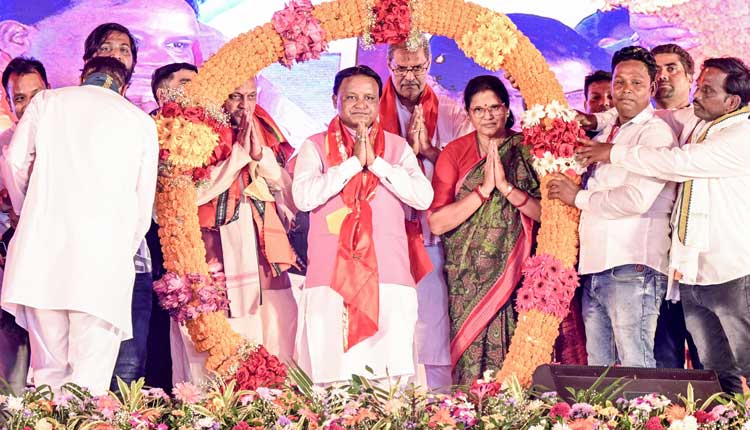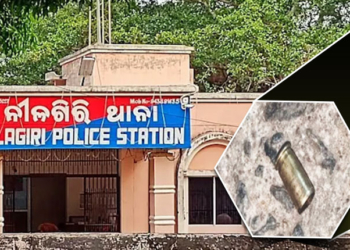Bhubaneswar: Odisha Chief Minister Mohan Charan Majhi addressed a state-level celebration in Puri, marking the BJP government’s first 100 days in office. Majhi emphasized the government’s commitment to fulfilling major promises made during the election.
Majhi began by paying homage to Mahaprabhu Jagannath and quoting Utkalmani Gopbandhu, stressing the importance of people-centric governance.
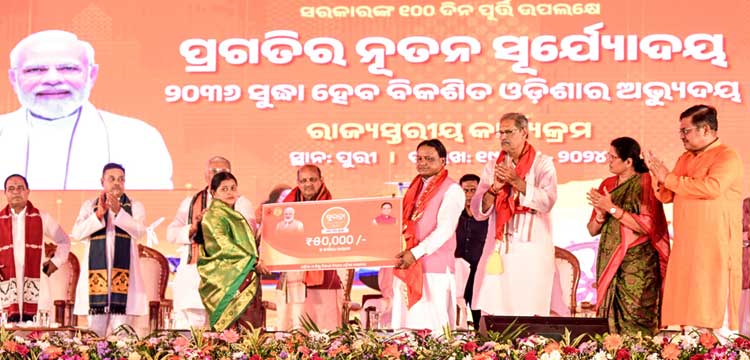
In his address, he outlined that Odisha is poised for transformative growth, with plans to build a prosperous state within the next 12 years. The foundation for this vision will be laid in the next five years, and remarkably, the process has already begun within the first 100 days. Emphasizing the government’s commitment, the CM stressed that their resolutions (Sankalp Patra) serve as their guiding principles, akin to sacred scriptures.
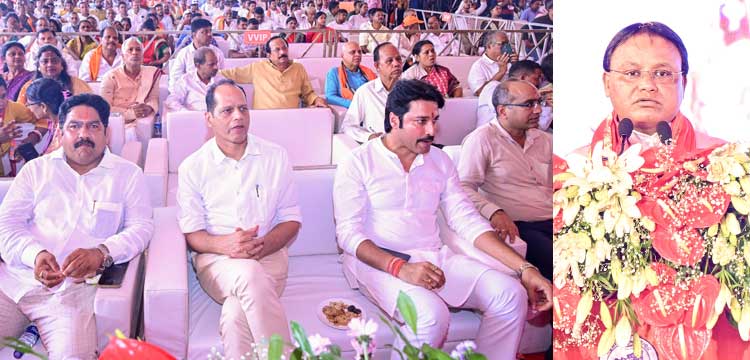
He highlighted the government’s achievements, including directly addressing public grievances, removing barriers between devotees and Lord Jagannath, establishing Rs 2000 crore fund for Odia Asmita revival, constructing Odia Asmita Bhawan and Odia Translation Academy, allocating Rs. 500 crore for temple development, implementing Rs 3100 per quintal minimum support price for paddy, launching CM-Kisan Yojana and a portal for farmer assistance, introducing Subhadra Yojana for women’s financial empowerment.
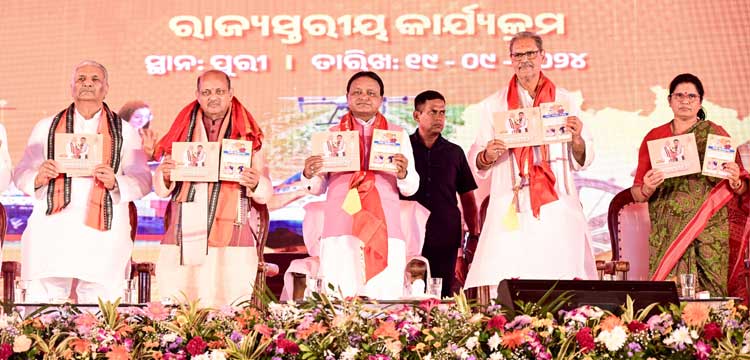
Majhi reaffirmed the government’s resolve to create a prosperous Odisha by 2036, with the first five years laying the foundation. He credited Prime Minister Narendra Modi’s election promises and the people’s support for the government’s success.
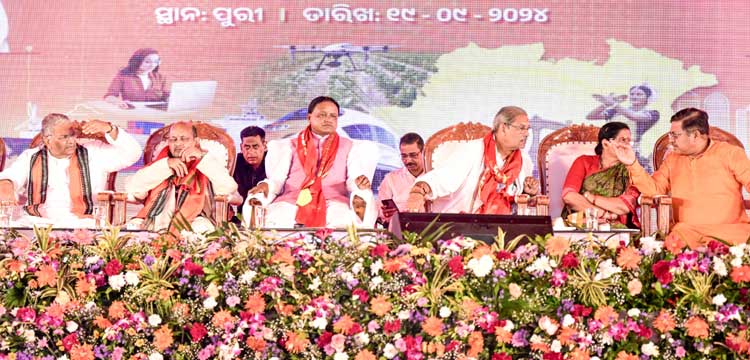
Criticising the former government, the CM said that the fall of the arrogant and anti-people government, which ruled for 24 years, is a testament to the people’s power. The 2024 election has shown that people won’t accept leaders who are out of touch, anti-people, or disregard their problems, Majhi said.
According to the Chief Minister, the conviction rate for corruption cases has reached 50%, while an impressive 80% conviction rate has been achieved for cases involving disproportionate assets.




